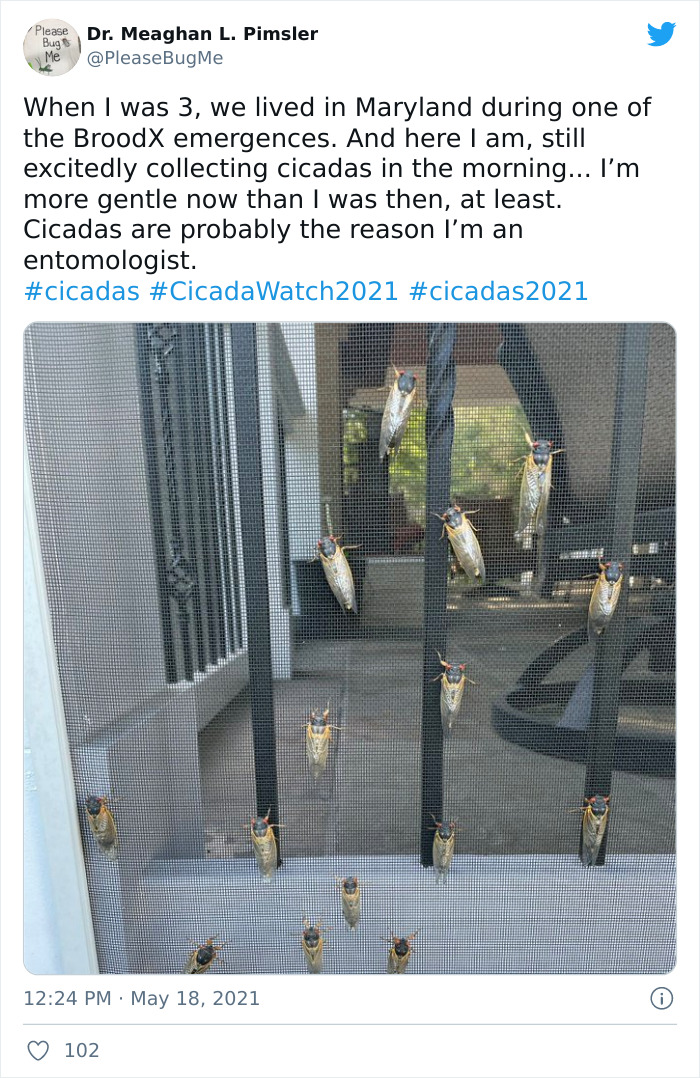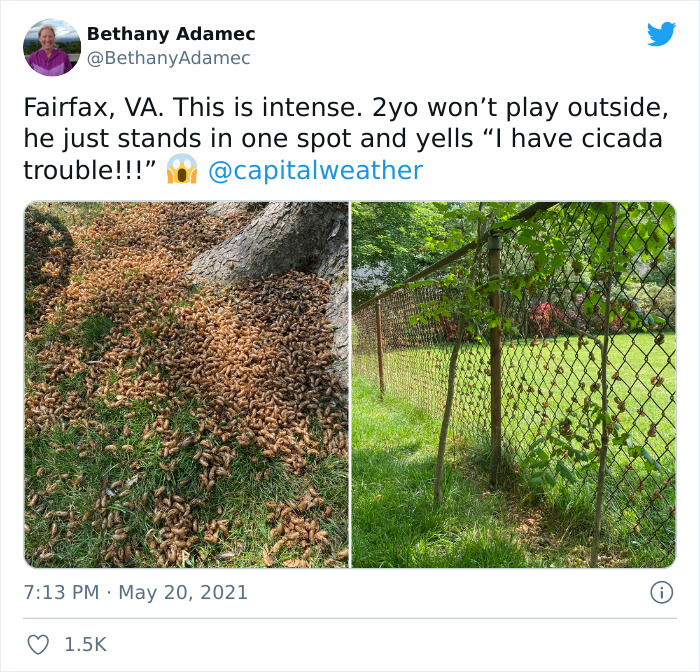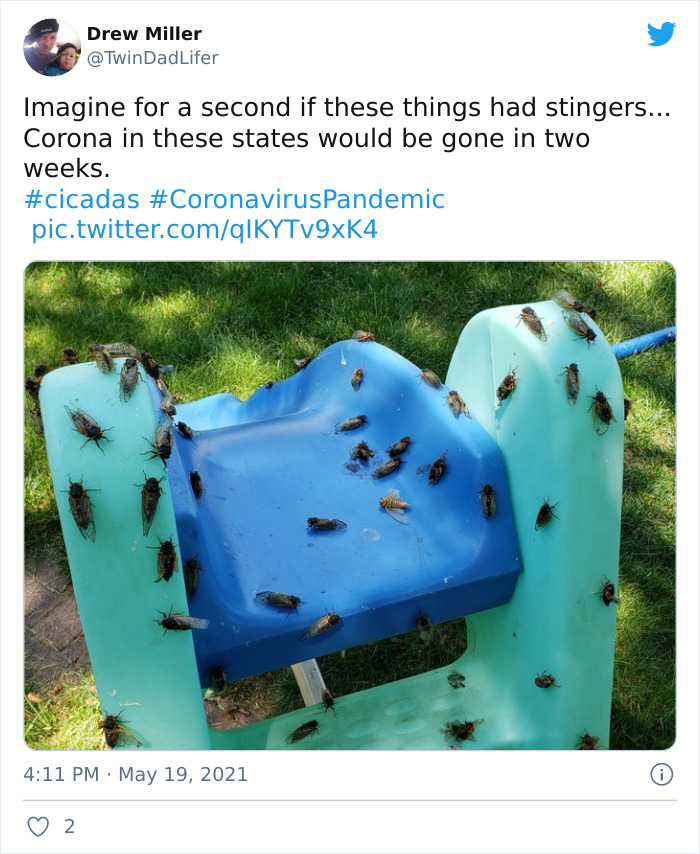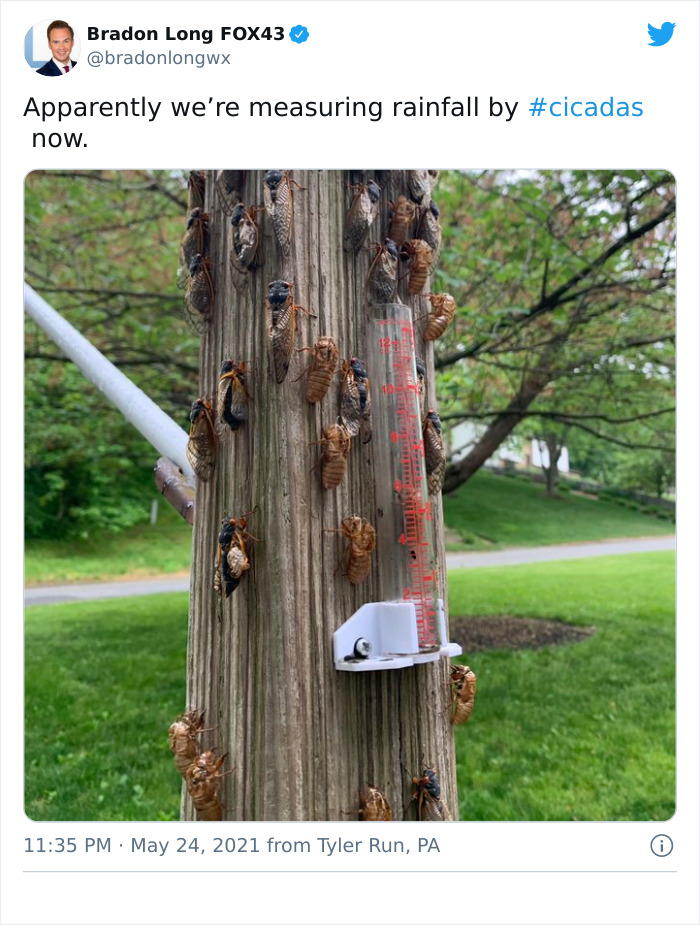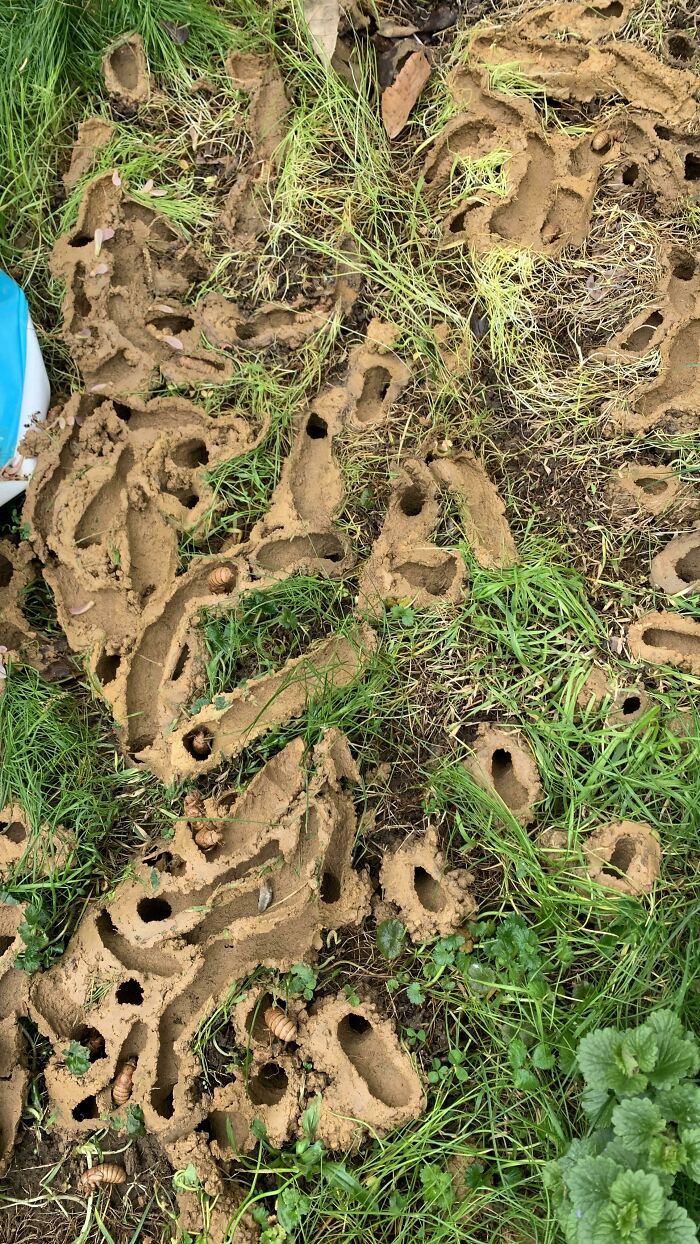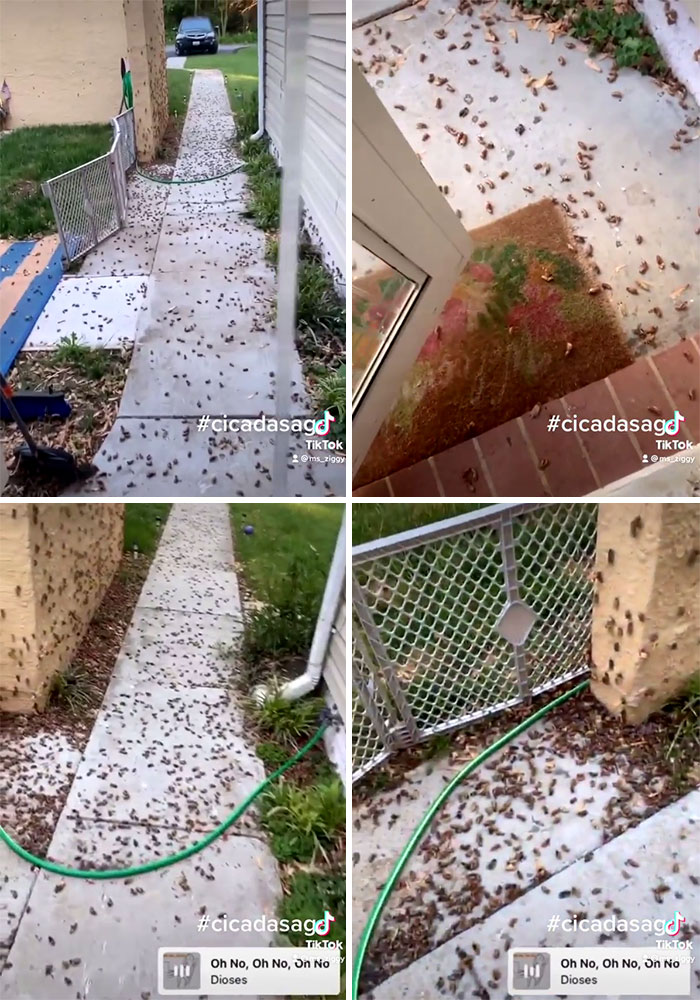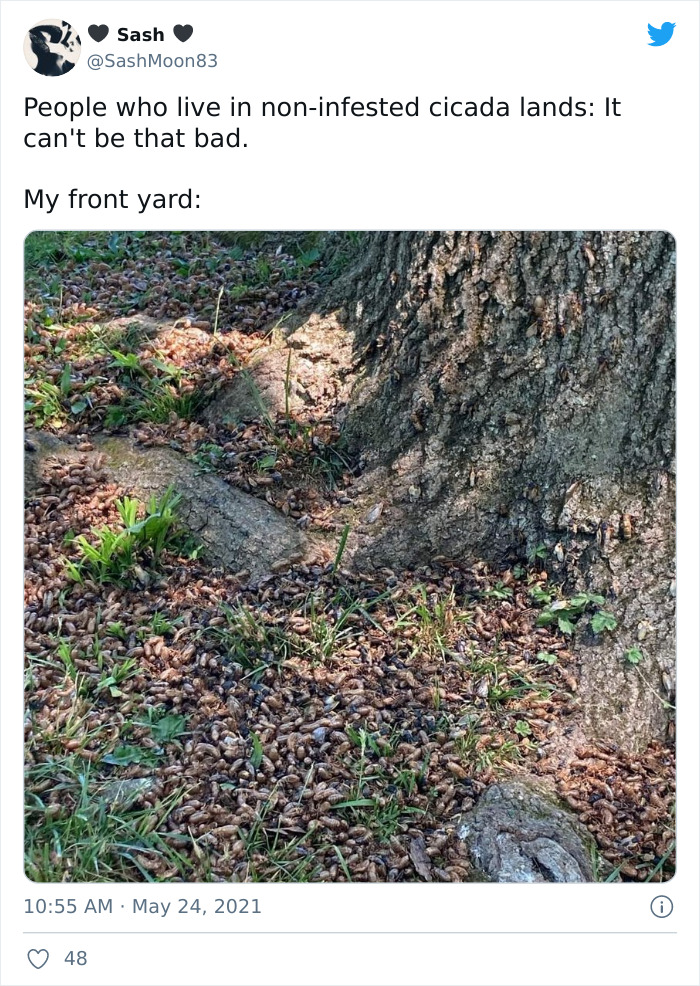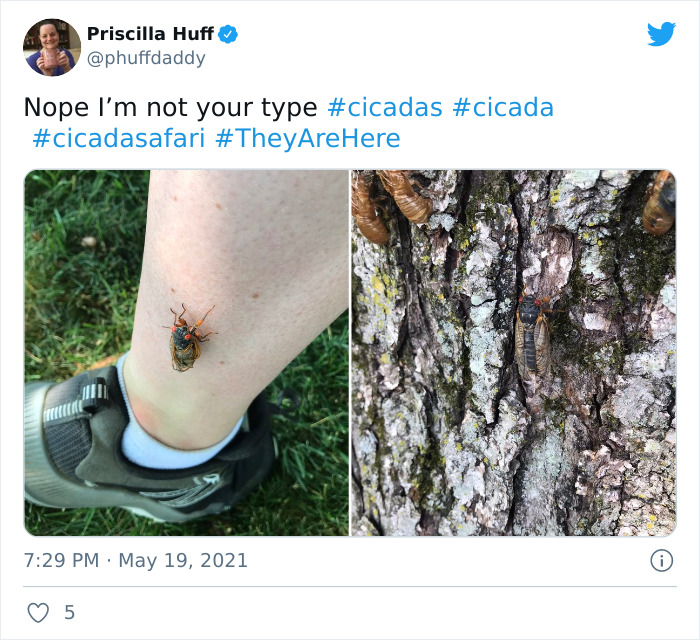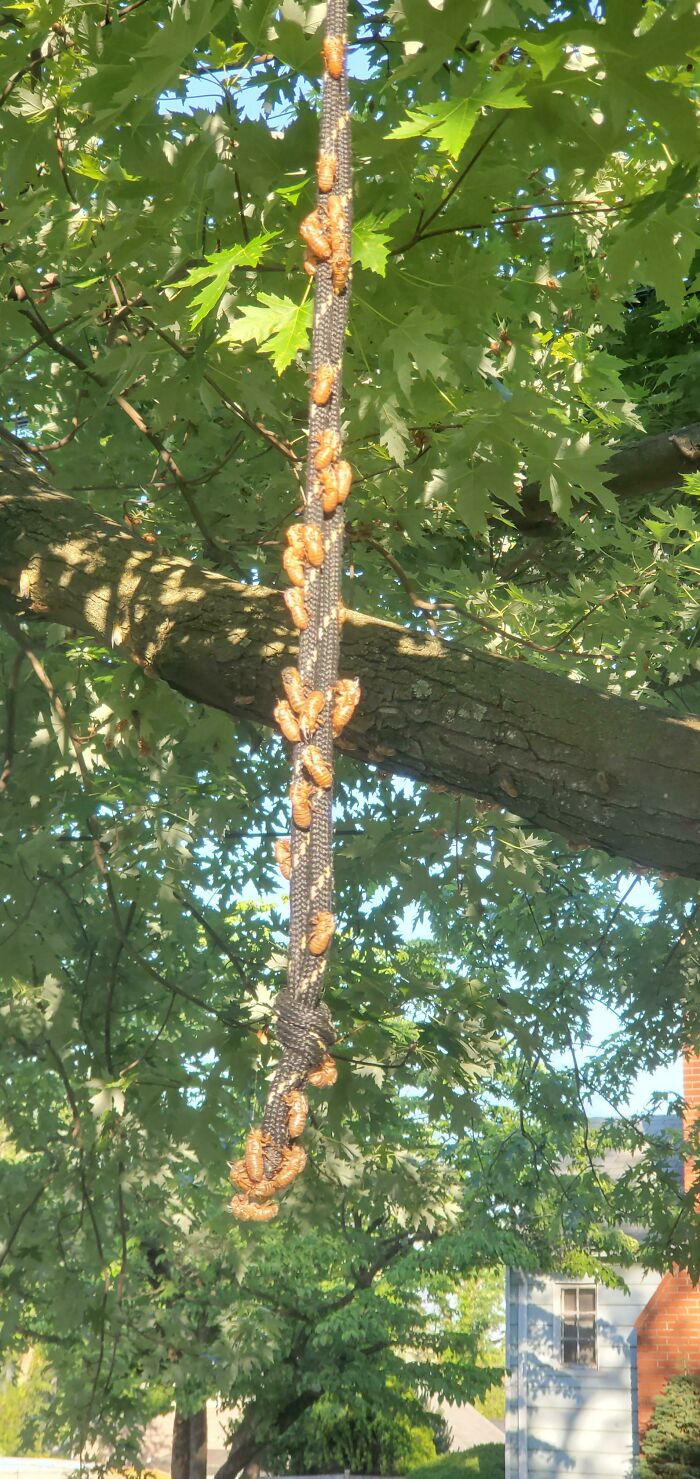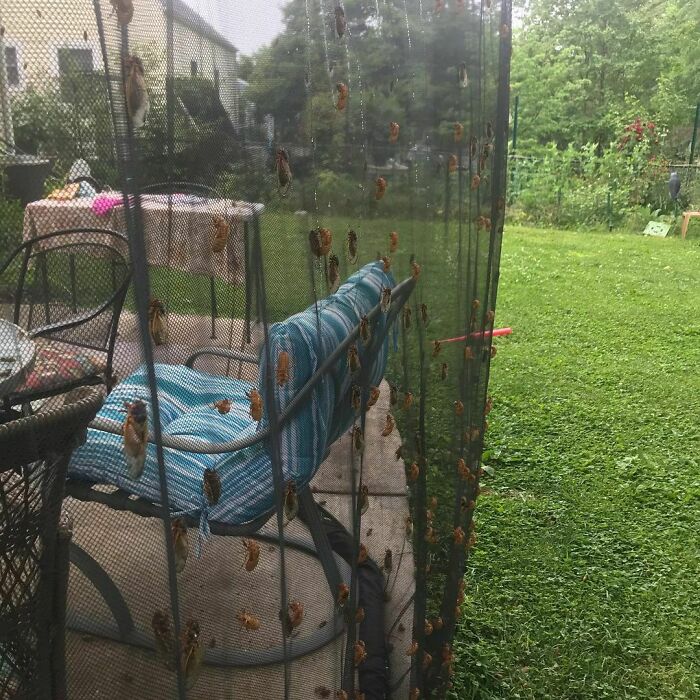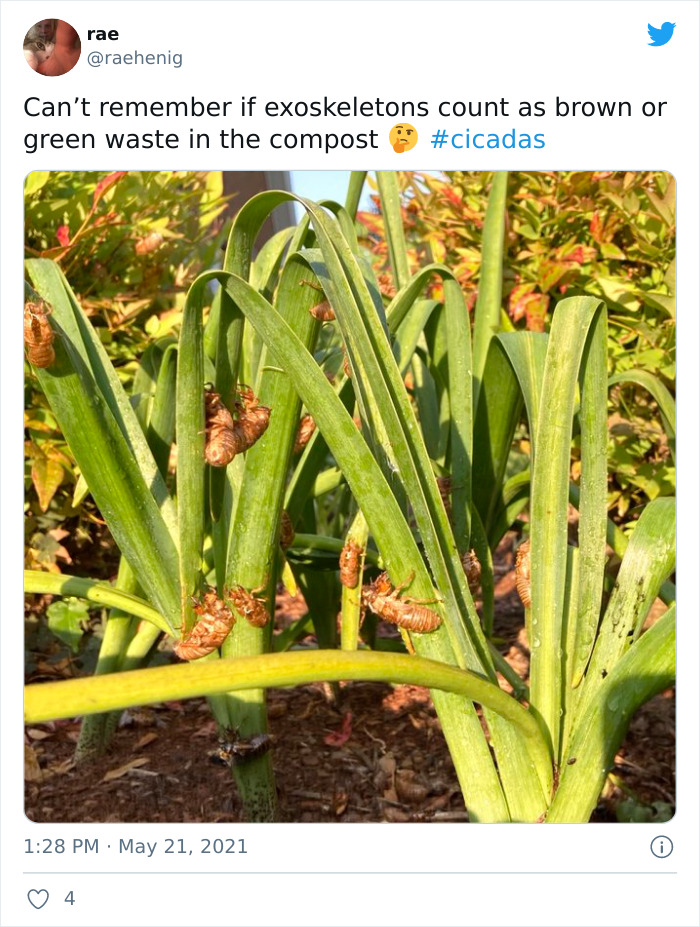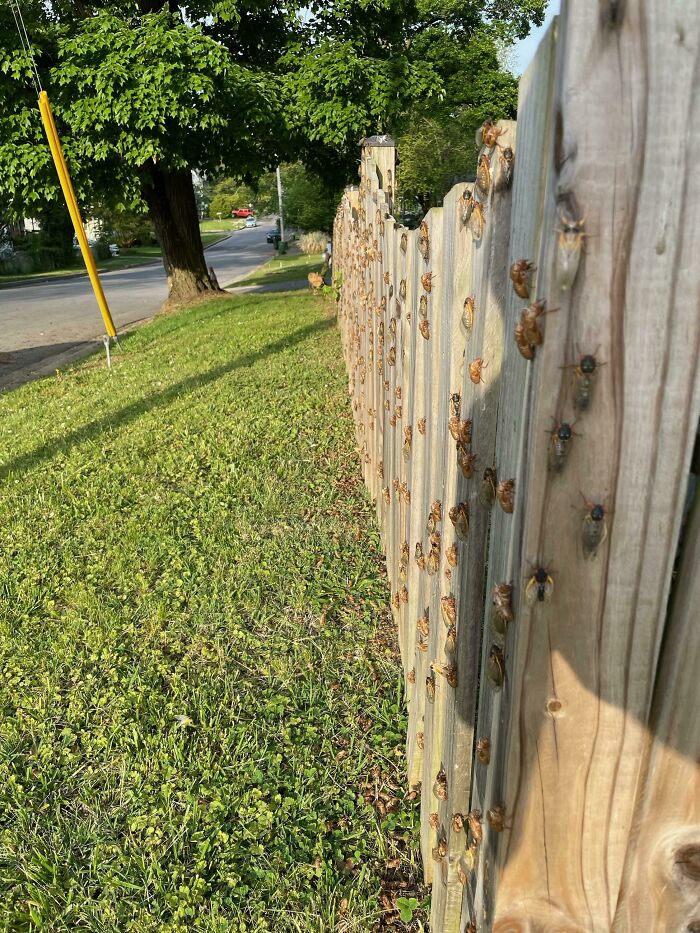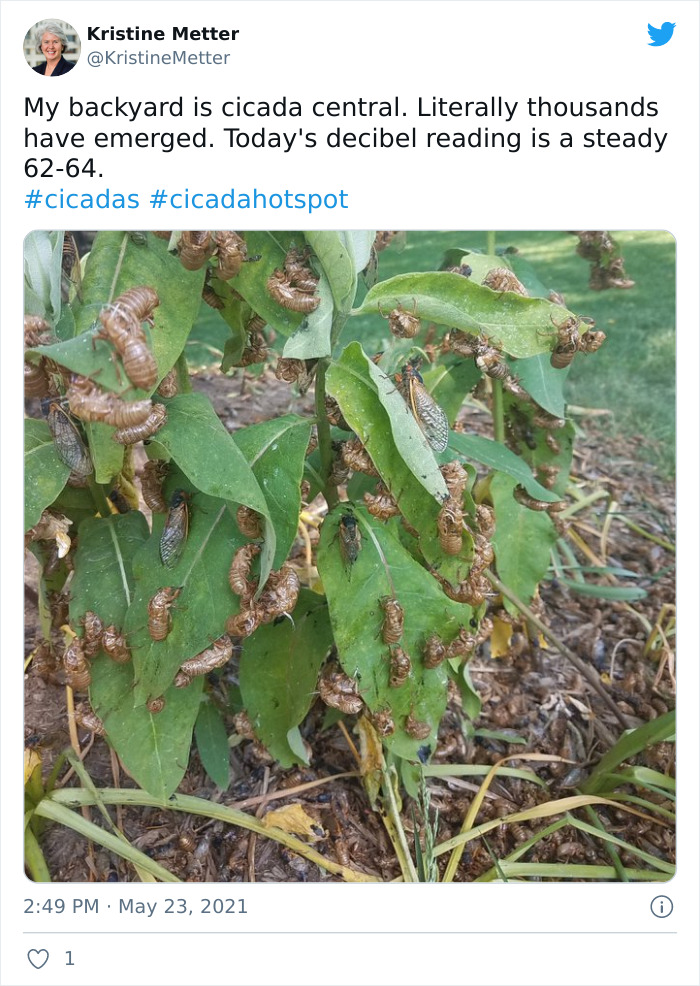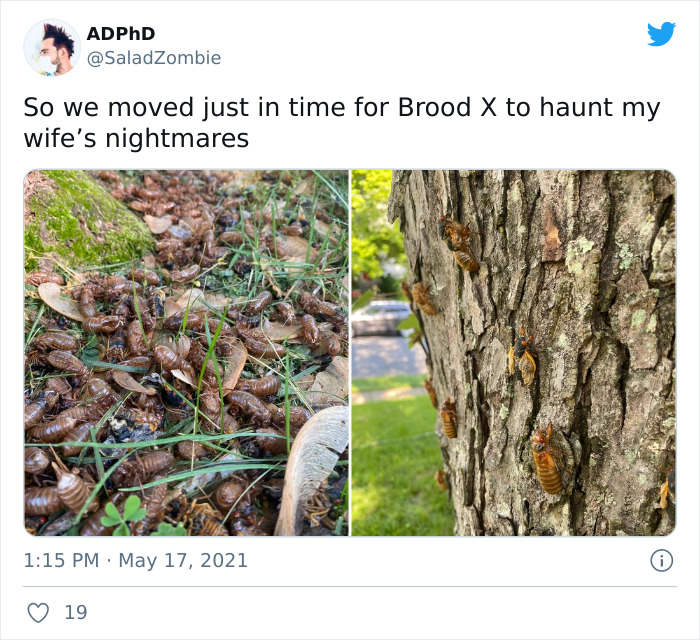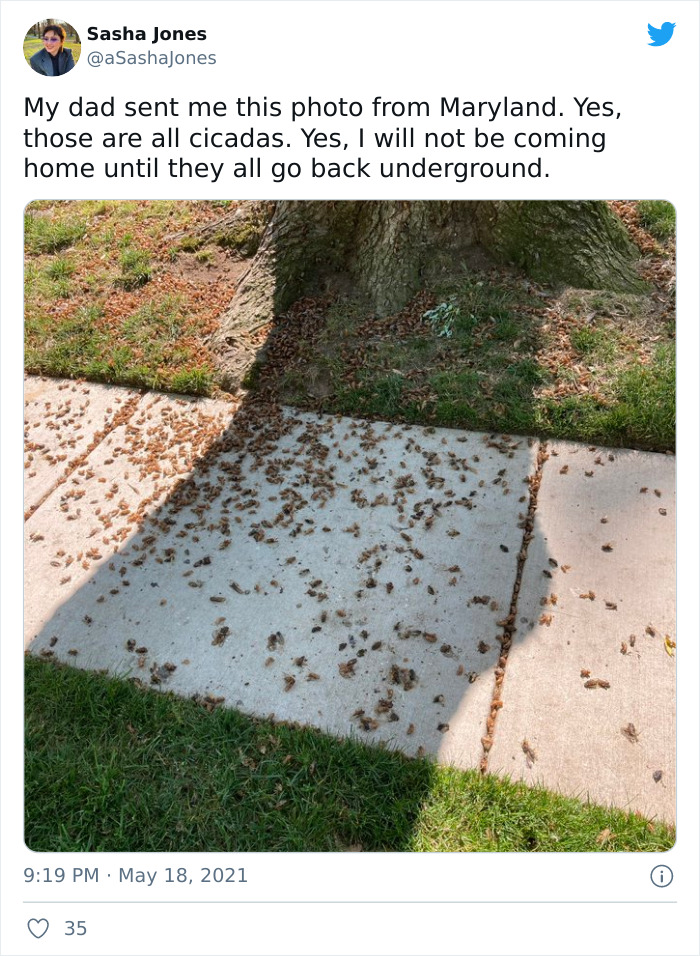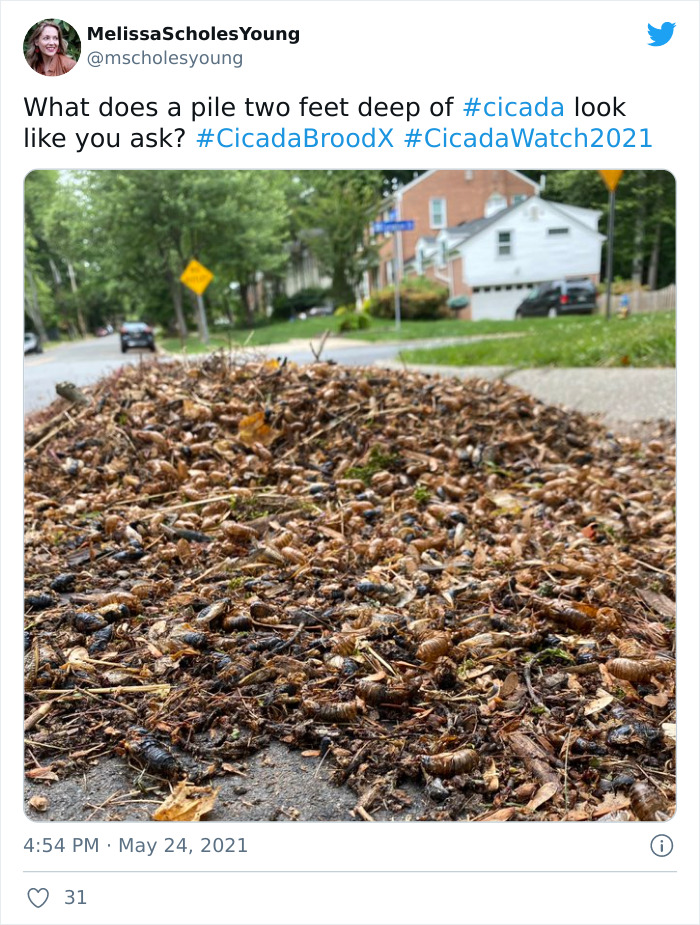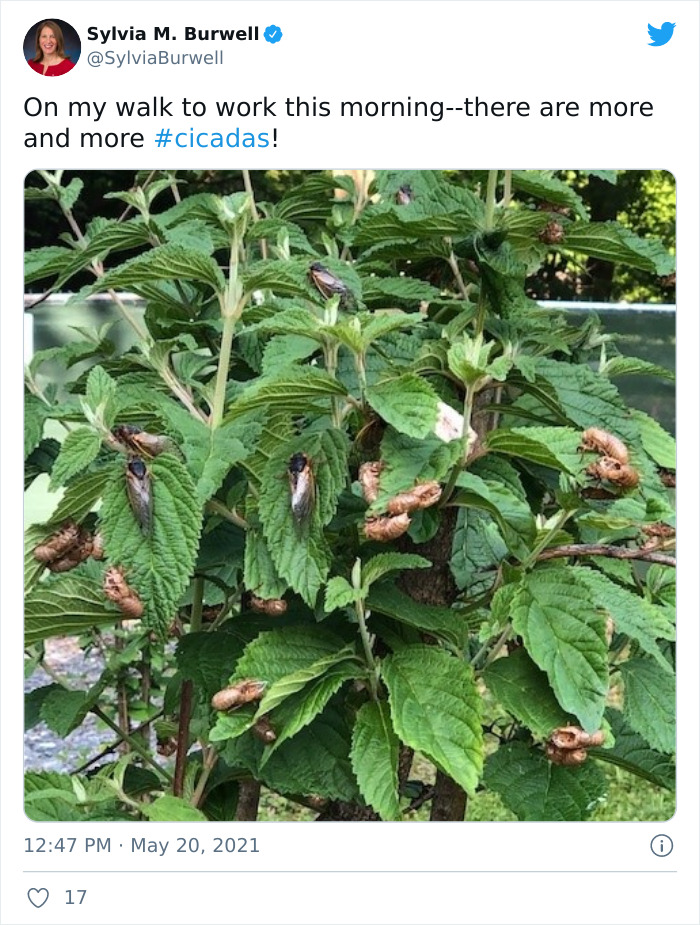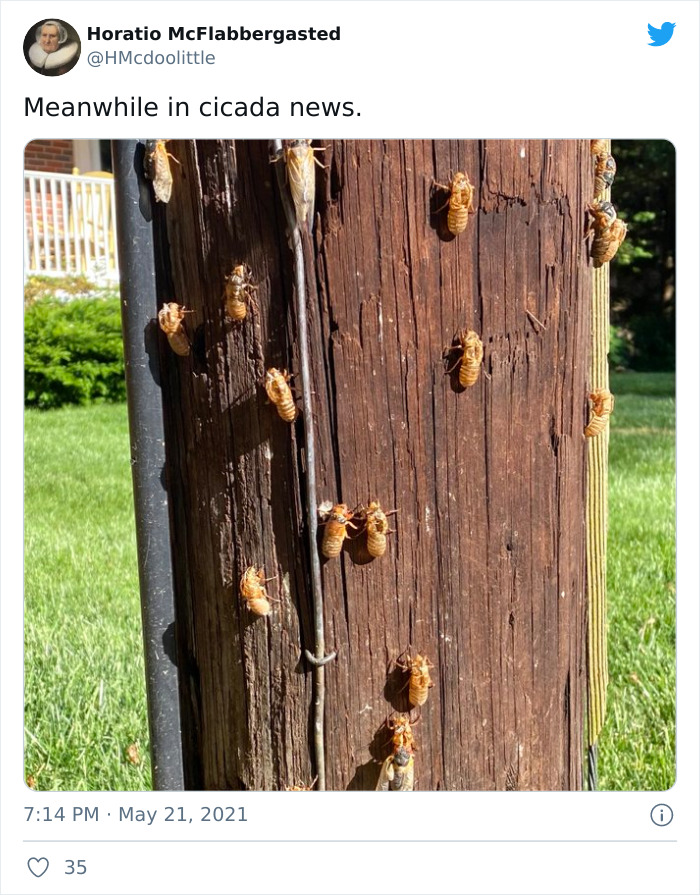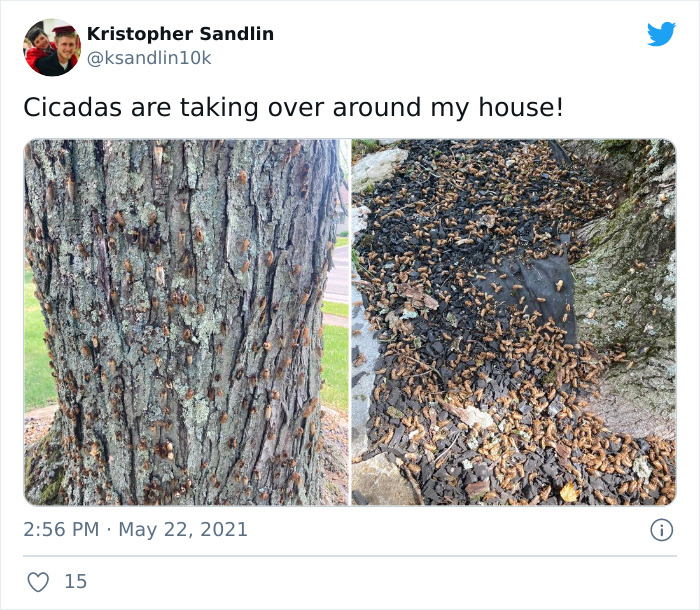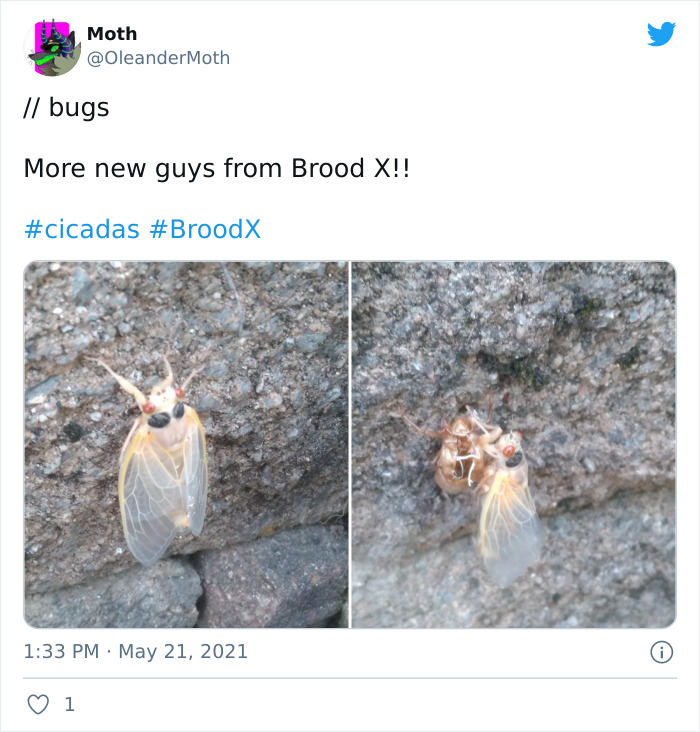
Billions Of Cicadas Emerge After 17 Years In The Ground And Create Chaos In Parts Of The US (30 Pics)
InterviewIf you’re scared of bugs, you might want to look away, dear Pandas. However, if you’re a nature-lover or simply curious to learn more about the world, then we’ve got an exciting story for you. There’s love in the air in the eastern United States, and billions, possibly even trillions, of cicadas are putting the moves on one another by showing off their musical skills.
After spending a whopping 17 years buried underground in an immature nymph state, these cicadas—collectively known as Brood X or the Great Eastern Brood—have finally emerged for everyone to see them in their full glory. The spectacle is awe-inspiring (and a tad terrifying if I’m completely honest).
People are sharing photos of what it’s actually like to go outside in some states, and Bored Panda has collected just a sample of the best ones to show you just how powerful nature can be. Have a scroll down and, if you’re currently in the eastern US, we’d absolutely love to hear your own experiences with Brood X in the comments.
I wanted to learn more about cicadas, so I reached out to Michael J. Raupp, an Emeritus Professor of Entomology at the University of Maryland and a Fellow of the Entomological Society of America. In a phone interview with Bored Panda, Professor Raupp told me that what's currently happening in the eastern US is something that people experience only a "handful of times in our lives." It's a "totally natural phenomenon that doesn't happen anywhere else" on Earth, and it's a spectacle of birth, death, life, and romance in the trees.
Read on for the full interview with the professor and to find out how to deal with the cicada mating season if you're a tad afraid of bugs.
This post may include affiliate links.
Cicadas Underneath Of An Old Tarp That We Pulled Away
Professor Raupp explained to Bored Panda that these cicadas have a very strange life cycle which makes them an untrackable species, safe from most predators. The fact is that what would normally be cicada predators—squirrels, raccoons, birds, etc.—don't live as long as the bugs which stay buried underground. It's a tactic that ensures better survivability.
According to Professor Raupp from the University of Maryland, some ground-dwelling mammals may snack on the cicadas while they're below ground, however, living underground for 17 years is still far safer and relatively predator-free than staying on the surface. In fact, many other kinds of bugs live underground and it's a very common tactic to stay safe.
The professor reiterated that cicadas are harmless: they don't bite or sting. However, he noted that we still shouldn't let our dogs eat too many of the bugs while out on walks. Cicadas themselves are "tasty and nutritious" when prepared properly, but anyone with an allergy to shrimp should avoid them, as both of their exoskeletons are the same. So fair warning, fellow gourmands.
I was also curious to find out how those Americans who are very much afraid of bugs should react to the current events. Professor Raupp told me that there are three main approaches that people could take. "Learn as much as possible," he told Bored Panda, highlighting the importance of educating ourselves about the natural world.
Second of all, the professor suggested that anyone who's incredibly worried and living in fear could seek professional counseling, whether that means speaking to your local clergyman, social worker, or psychologist. That way, you can work through your fears.
However, if that doesn't work, you can always take what Professor Raupp called a "cicada vacation" and get out of town for a few weeks. This doesn't necessarily mean flying to the West Coast to escape the billions and billions of cicada (unless you want to, of course!)—there are plenty of cicada-less areas nearby in the east, too. All it takes is a bit of research.
NOPE NOPE NOPE NOPE NOPE NOPE NOPE NOPE NOPE NOPE NOPE NOPE NOPE NOPE NOPE NOPE NOPE NOPE NOPE NOPE NOPE NOPE NOPE NOPE NOPE NOPE NOPE NOPE NOPE NOPE NOPE NOPE NOPE NOPE NOPE NOPE NOPE NOPE NOPE NOPE NOPE NOPE
Live From The Front Lines. Aka, My Backyard. Brood X Showing Up Strong In Mount Vernon.
East Coast Cicadas decided to all come to my house
Oh my god if this was me i would go into isolation until they all went away
Even though they’ve spent so much time below ground, these cicadas won’t be around above it for much longer. Their mating season will end by around mid-June, by which time, that particular new generation of cicadas will wait years and years to surprise future Americans.
Here’s the thing, though, periodical cicadas don’t necessarily emerge only on the 17th spring of their lives. Some choose to emerge on the 13th year, sometime between late April and early June, depending on the area.
They do this in sync and in massive numbers, but scientists are still baffled as to how the cicadas know to do this. Nature, you’re wonderfully weird, and I love it. There are some theories, however.
For instance, the Cicada Crew of the University of Maryland notes that one hypothesis for how cicadas track time is by sensing the seasonal changes in the quality or quantity of nutrients or plant hormones in the xylem sap that they use for nourishment.
Meanwhile, another theory is that they have an unknown molecular clock inside their bodies that works like a calendar. Whatever the exact reason might be, on the 17th or 13th year, cicadas emerge from the ground en masse once the soil temperatures reach around 18 degrees Celsius or 64 degrees Fahrenheit.
After emerging from beneath the earth, male cicadas get together in chorus centers and attract the loves of their lives. Afterward, the females lay eggs in the stems of woody plants. Unfortunately, that’s where the lovey-dovey romance ends, however. Having completed their prime directive in life, going forth and multiplying, the adult cicadas die off. However, they’ve seeded an entire new brood and the circle of life continues.
One last thing before we end things: did you know that more people eat cicadas than you'd expect? Enjoy that thought while I try and get my appetite back before lunch.
How can you be so calm over that cicada on your leg. I would've shrieked and ran three houses away
Y'all got cicadas too?
I read the hidden comment and I cannot understand why it was hidden. Not offensive in any way!
Isn't it creepy to realize the cicadas are ALWAYS there? Just usually, they're just below the ground. Can you imagine a horror movie about cicadas? The very ground you walk on being literally stuffed full with the baddies?
They may look gross, but it could be a lot worse. Cicadas don't chew through crops, they are not poisonous, they don't sting or bite, and they are not known to carry disease. Although I personally would hide out indoors for days, but hey.
They're just freakin' noisy. I remember one summer 7 or 8 years ago when there were loads of them in Southern France. I was driving on the highway, had a stop in a rest area with many trees. I was astounded by the number of cicadas I could see on the tree trunks. Suddenly I saw a guy get out of the cab of a big transport truck from Denmark. He ran to me with crazy, haunted eyes, and screamed "what's that NOISE ????". He was just trying to get some sleep, but that was impossible, the air was saturated with the song of cicadas. Coming from the North, it was probably the first time he heard them. No wonder there are legends about how this sound drives people crazy, imagine having to deal with it night and day for weeks.
Load More Replies...Just a way of reminding us that this is not our planet. We're just one small piece of it.
They may look gross, but it could be a lot worse. Cicadas don't chew through crops, they are not poisonous, they don't sting or bite, and they are not known to carry disease. Although I personally would hide out indoors for days, but hey.
They're just freakin' noisy. I remember one summer 7 or 8 years ago when there were loads of them in Southern France. I was driving on the highway, had a stop in a rest area with many trees. I was astounded by the number of cicadas I could see on the tree trunks. Suddenly I saw a guy get out of the cab of a big transport truck from Denmark. He ran to me with crazy, haunted eyes, and screamed "what's that NOISE ????". He was just trying to get some sleep, but that was impossible, the air was saturated with the song of cicadas. Coming from the North, it was probably the first time he heard them. No wonder there are legends about how this sound drives people crazy, imagine having to deal with it night and day for weeks.
Load More Replies...Just a way of reminding us that this is not our planet. We're just one small piece of it.

 Dark Mode
Dark Mode 

 No fees, cancel anytime
No fees, cancel anytime 






